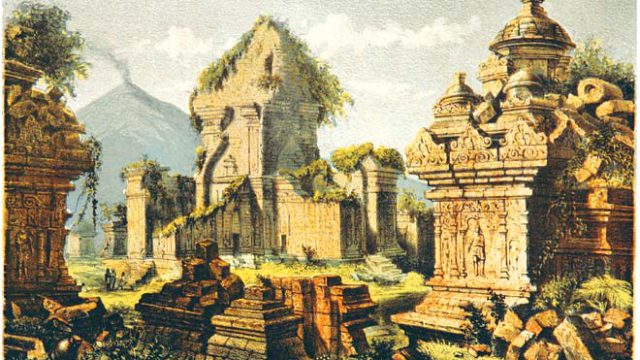The intense glare on Borobudur often tends to put the stunning temple complex of Chandi Sewu in central Indonesia in the shade. Anywhere else, this stunning, vast architectural mandala of 249 temples would’ve been the star. Built in the 8th century under the Sailendra Dynasty, for centuries it lay partially buried in the debris of the live volcano of Mount Merapi that hulks nearby. The locals attached myth-haunted legends of an accursed city built by demons to Sewu, and this ensured that the complex mostly survived the cannibalisation of stones and statues.
While under the aegis of the Dutch East Indies, the ruins were first studied, with lithographs and photographs of the ruins gracing many a Dutch memoir of Indonesia and its surrounding regions. This lithograph published in 1861 as an illustration in the book of a Dr. S.A. Buddingh, who travelled in this part of the world between the years 1852 and 1857. The main temple, in the background, dedicated to the Bodhisattva Manjushri, was first drawn in 1807 by H.C. Cornelius. The Java War and its aftermath took a heavy toll and re-construction could only begin in 1908. This somewhat dramatic lithograph, with the smoking Mount Merapi in the distance, captures a time when the complex was at its most vulnerable, ravaged by war. Compared to this state of devastation, Chandi Sewu’s present avatar is a miracle of sensitive and sophisticated restoration. No longer is it the dreaded abode of demons, but a sanctuary of serenity




